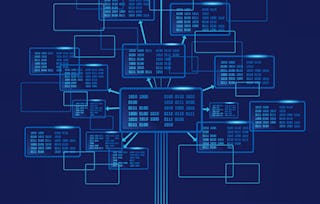Important note: The second assignment in this course covers the topic of Graph Analysis in the Cloud, in which you will use Elastic MapReduce and the Pig language to perform graph analysis over a moderately large dataset, about 600GB. In order to complete this assignment, you will need to make use of Amazon Web Services (AWS). Amazon has generously offered to provide up to $50 in free AWS credit to each learner in this course to allow you to complete the assignment. Further details regarding the process of receiving this credit are available in the welcome message for the course, as well as in the assignment itself. Please note that Amazon, University of Washington, and Coursera cannot reimburse you for any charges if you exhaust your credit.

Communicating Data Science Results

Communicating Data Science Results
This course is part of Data Science at Scale Specialization

Instructor: Bill Howe
17,298 already enrolled
Included with
142 reviews
Skills you'll gain
Details to know

Add to your LinkedIn profile
1 assignment
See how employees at top companies are mastering in-demand skills

Build your subject-matter expertise
- Learn new concepts from industry experts
- Gain a foundational understanding of a subject or tool
- Develop job-relevant skills with hands-on projects
- Earn a shareable career certificate

There are 3 modules in this course
Statistical inferences from large, heterogeneous, and noisy datasets are useless if you can't communicate them to your colleagues, your customers, your management and other stakeholders. Learn the fundamental concepts behind information visualization, an increasingly critical field of research and increasingly important skillset for data scientists. This module is taught by Cecilia Aragon, faculty in the Human Centered Design and Engineering Department.
What's included
14 videos1 peer review
Big Data has become closely linked to issues of privacy and ethics: As the limits on what we *can* do with data continue to evaporate, the question of what we *should* do with data becomes paramount. Motivated in the context of case studies, you will learn the core principles of codes of conduct for data science and statistical analysis. You will learn the limits of current theory on protecting privacy while still permitting useful statistical analysis.
What's included
14 videos
Science is facing a credibility crisis due to unreliable reproducibility, and as research becomes increasingly computational, the problem seems to be paradoxically getting worse. But reproducibility is not just for academics: Data scientists who cannot share, explain, and defend their methods for others to build on are dangerous. In this module, you will explore the importance of reproducible research and how cloud computing is offering new mechanisms for sharing code, data, environments, and even costs that are critical for practical reproducibility.
What's included
17 videos1 assignment1 programming assignment
Earn a career certificate
Add this credential to your LinkedIn profile, resume, or CV. Share it on social media and in your performance review.
Instructor

Offered by
Explore more from Data Analysis

University of Washington

University of Washington

University of Washington
Why people choose Coursera for their career

Felipe M.

Jennifer J.

Larry W.

Chaitanya A.
Learner reviews
- 5 stars
33.80%
- 4 stars
22.53%
- 3 stars
16.90%
- 2 stars
7.74%
- 1 star
19.01%
Showing 3 of 142
Reviewed on Aug 6, 2019
Too little people participated and long peer review time.But the course content is good.
Reviewed on Nov 11, 2016
Great and useful first week about visualization, although I wish it would cover more material . The ethics and cloud computing felt somewhat incomplete, but useful as well.
Reviewed on Jun 17, 2017
The information from the last assignment is split into Forums and Tasks description. This is very easy to fix and not doing it shows passivity from the organizers

Open new doors with Coursera Plus
Unlimited access to 10,000+ world-class courses, hands-on projects, and job-ready certificate programs - all included in your subscription
Advance your career with an online degree
Earn a degree from world-class universities - 100% online
Join over 3,400 global companies that choose Coursera for Business
Upskill your employees to excel in the digital economy
Frequently asked questions
To access the course materials, assignments and to earn a Certificate, you will need to purchase the Certificate experience when you enroll in a course. You can try a Free Trial instead, or apply for Financial Aid. The course may offer 'Full Course, No Certificate' instead. This option lets you see all course materials, submit required assessments, and get a final grade. This also means that you will not be able to purchase a Certificate experience.
When you enroll in the course, you get access to all of the courses in the Specialization, and you earn a certificate when you complete the work. Your electronic Certificate will be added to your Accomplishments page - from there, you can print your Certificate or add it to your LinkedIn profile.
Yes. In select learning programs, you can apply for financial aid or a scholarship if you can’t afford the enrollment fee. If fin aid or scholarship is available for your learning program selection, you’ll find a link to apply on the description page.
More questions
Financial aid available,

